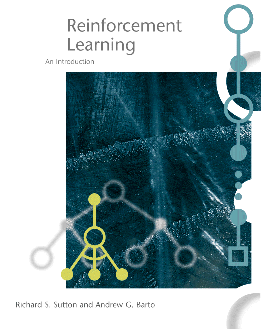 |
CS 391 - Special Topic: Machine Learning
Course Information |
Course Description
Machine Learning is a subfield of Artificial Intelligence that has a goal
of building systems that can adapt to their environment or learn from experience.
Reinforcement learning is a specific approach to Machine Learning in which
a software agent seeks to learn optimal behavior through interaction with
a real or simulated environment. The agent senses the current state
of the environment, selects and performs an action, and consequently receives
a numeric reward/penalty signal. Through repeated experience of this
process, the agent seeks to learn an action policy that maximizes its reward
over time. In this course, we will cover the reinforcement learning
problem, dynamic programming, Monte Carlo methods, temporal-difference
learning, eligibility traces, and function approximators. Each student
will then independently propose and complete a reinforcement learning programming
project.
Texts
Texts
Todd Neller
Lecture: M,W,F 12:00-12:50, Glatfelter 203
Office: Glatfelter 209
Office Hours: M-F 10:00-10:50AM or by appointment.
Note:
Generally, feel free to drop in if my office door is open. If it
is closed, I'm desperately seeking to keep on top of things and rabid attack
ferrets may drop from the ceiling in my defense.
Phone: 337-6643
E-mail: 
Grading
Your final grade will be determined from the following components:
- 50% Homework Assignments
- 20% Project (including Documentation and Presentation)
- 5% Quizzes
- 25% Attendance / Class Participation
You are responsible to know the material from each lecture and reading
assignment before the start of the next class. Homework is due at
the beginning of lecture on the due date. Late homework will
not necessarily be accepted. Homework submitted after the beginning
of the following lecture will receive no credit. Code that does
not compile may not receive credit. Class attendance and participation
is required. If you attend all classes and are willing to participate,
you'll get 100% for this part of your grade. Even if you know enough
to give a particular lecture, please consider the value of helping your
peers during in-class exercises
Honor Code
Honesty, Integrity, Honor. These are more important than anything
we will teach in this class. Students can and are encouraged to help
each other understand course concepts, but all graded work must be done
independently. The work you submit (including both code and problem solving
ideas expressed in the code) should be your independent work. For
detailed information about the honor code, see
http://www.gettysburg.edu/college_life/orgs/honor_code/index.html.


